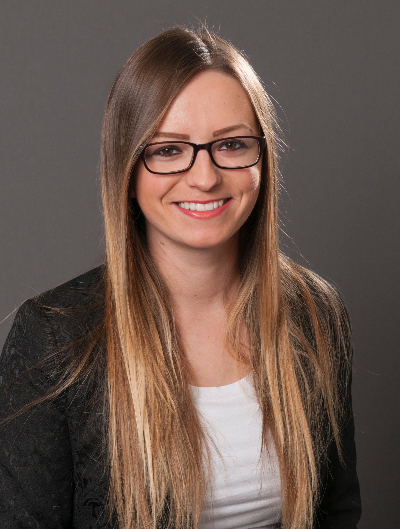Alumna Investigates Outbreaks in Environmental Health

Story text

As an environmental health specialist with Jefferson County (CO) Public Health, Urszula Tyl wears the hat of health detective. She monitors food preparation and handling amidst reports of food-borne illness and tracks illnesses in childcare settings. Now, she is leading contact tracing efforts during the COVID-19 pandemic.
“We do so much, there’s never a way to really be bored,” Tyl said. “You realize you are doing work for the greater good, work that is keeping populations from getting sicker, trying to control the spread of the pandemic.”
As a 2016 graduate of the BA in Public Health program at the University of Illinois at Chicago (UIC) School of Public Health, Tyl is following up with county residents who test positive for coronavirus. She collects detailed information on when a person contracted the virus, what symptoms they exhibit, their medical history and a list of contacts who may have been exposed. Then, the process repeats itself with those who have been in contact with an infected resident. Tyl says reaction to tracing efforts has been mixed; some people are interested in the public health process playing out while others are hesitant to participate.
As a Spanish speaker, she is taking on caseloads of Spanish-speaking residents, which presents unique challenges in the tracing process. Tyl says this population may be more hesitant to give personal information, but building a connection is key to unite people with social services such as grocery delivery, rental assistance and isolation space in hotels.
She credits the broad focus of the undergraduate programs at UIC with preparing her to take on leadership roles at her agency. When the department started a health equity team, she referenced her capstone project to bring in perspectives on equity to the discussion.
Selected Quote
The experiences I’ve had at UIC, the health equity focus, has translated to my job. These are people who have lost a few months of income, who want to go back to work even though they can’t do that for ten-plus days, so we need to make sure these people are as supported as much as we can.
| BA in Public Health '16
Story text, continued.
Pre-pandemic, Tyl’s work focused on investigating reports of food-borne illness at county restaurants. Foods such as sauces, soups and gravies that sit in what Tyl calls the “temperature danger zone,” allow bacteria to grow and can make someone sick. When a resident reports illness after a restaurant meal, Tyl reaches out to restaurants to talk through the situation, monitoring if employees have fallen ill and going over best practices. Confirmed cases of illness such as salmonella lead to a mandatory on-site investigation.
In childcare settings, Tyl reaches out to providers to focus on cleaning and disinfecting procedures when exposure to an infectious illness takes place, such as hand, foot and mouth disease. She ensures providers are keeping a line list, a tool to track those who are ill and those exposed, to mitigate and prevent further outbreaks.
“In my field, our job is to help the community minimize and prevent illness, but you don’t see that it’s a system that’s in place,” Tyl said. “COVID has made me realize why I chose public health, how much we’re really needed.”